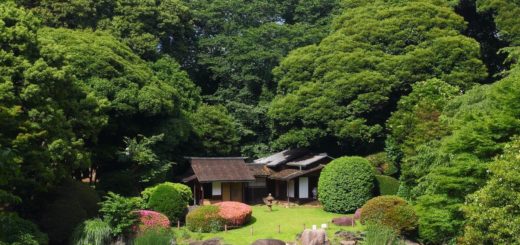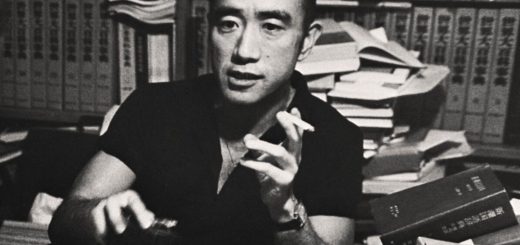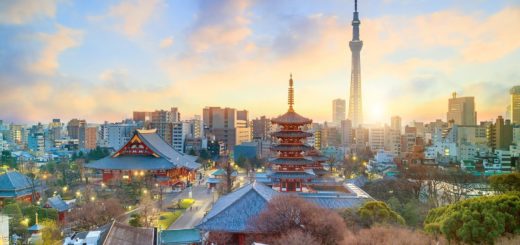Japan Brief History Part V
In 1998 Hashimoto was replaced by K. Ōbuchi, whose government enacted further financial reforms. After Ōbuchi’s death (2000), Y. Mori was appointed prime minister, whose government was overwhelmed the following year by a series of financial scandals. The new head of the government, J. Koizumi, turned out to be a leader of a new kind, able to establish a more direct relationship with the citizens and set clear objectives to a nation in a phase of economic stagnation. Successes in promoting a new period of development, the downside of which were cuts to the welfare state, the growing flexibility of the labor market and the crisis of the least productive sectors, allowed him to win the early elections of 2003 and 2005. After Koizumi’s retirement from politics (2006), Shinzo Abe took over the leadership of the government and the Liberal Democratic Party, who confirmed his predecessor’s economic and foreign policy goals, but resigned in 2007 after the party’s defeat in the legislative elections. Less than a year lasted the executive of his successor Y. Fukuda, who resigned in 2008 due to the worsening of the economic crisis. He was succeeded by former Foreign Minister T. Aso, but the 2009 elections decreed the end of the Liberal Democratic rule, passed in the Lower House from 300 to 119 deputies, and the victory of the Democratic Party of Y. Hatoyama, who became Prime Minister of a coalition government formed, in addition to its party, by the Social Democratic one and the New People’s Party. Hatoyama was replaced in June 2010 by former Prime Minister of Finance Naoto Kan,
According to WATCHTUTORIALS, on the international level, in 1992 the passing of laws allowed, for the first time since 1945, the sending of Japanese forces abroad for peacekeeping operations within the UN. The following years saw a development in Japan’s presence in contexts of international crises: in September 2001, Japan sided with the US-led coalition in support of armed intervention against Afghanistan; in the war against Iraq a peacekeeping contingent was sent (2004-06).
Since the 1990s Japan has intensified relations with the countries of the Asian area and in particular with China and South Korea, with which economic and trade treaties have been signed. Relations with Russia have also improved, and in 1998 an agreement was signed to increase economic cooperation and reach a solution to the dispute concerning some islands on the border between the two states. On the other hand, relations with North Korea remain problematic, due to its experimentation with missiles and nuclear weapons.
In March 2011, the northern region of Japan was hit by the most violent earthquake ever recorded in the country, followed by a tsunami that devastated the north-west coast; the earthquake also caused severe damage to the Fukushima nuclear power plant. The catastrophe has eroded the already wavering credibility of the Democratic Party, also compromised by the economic decline of the country in the face of the advance of Chinese commercial power and by the inconclusiveness of the prime ministers who in the space of two years have alternated at its helm. In August of the same year, overwhelmed by the controversy over the delay and difficulties for reconstruction after the tsunami, Prime Minister Naoto Kan resigned and was replaced by Yoshihiko Noda, who managed to beat the other four candidates for leadership of the Democratic Party. In November 2012, forced to resign by the opposition – whose support was essential for the approval of the budget and other measures in the upper house, where he did not hold the majority – and given that consensus was eroded for the benefit of the Liberal Democratic Party led by the former Prime Minister Abe, Noda dissolved the lower house by calling early elections. In the consultations, held in December, the Liberal Democrats obtained 294 of the 480 seats in the Lower House, while the Democratic Party suffered a clear defeat, winning only 57 seats, less than a fifth compared to 2009; after having ruled from 1955 to 2009, with only eleven months of interruption, it has proved to be relatively effective, even if the typical problems of the Japanese economy persist, in particular the enormous public debt of the country. In the three years at the helm of the Abe government, he has given a considerable acceleration to the process of evolution of the Japanese security policy, promoting the concept of active pacifism, according to which the Japan should not limit himself to refraining from any type of use of force, but become an active contributor to peace and stability. In the elections held in July 2016 for the partial renewal of the Upper House, the Liberal Democratic Party of the premier won an absolute majority, securing with two minor parties 77 of the 121 seats up for grabs and obtaining the two-thirds majority necessary to approve a new constitution to be submitted to referendum; among other points, the constitutional amendment would offer the Japanese armed forces the legitimacy to carry out military actions even in the presence of a direct threat against their national borders and in defense of allies under attack. In September 2017, in order to obtain a strong mandate and initiate constitutional reforms, Abe formally dissolved the lower house and called early elections scheduled for the following month, to which he reported a clear affirmation, obtaining a majority of over two thirds. while in the consultations held in July 2019 the premier’s party obtained 71 of the 124 seats in the upper house, just below the majority necessary for the constitutional changes advocated by the politician, while the Democratic Constitutional Party, main opposition force, won 53 seats. Forced by health problems, Prime Minister Abe resigned from office in August 2020, taking over from him the following month by Y. Suga, following whose resignation the former Foreign Minister F. Kishida assumed office in October 2021. In the consultations held in the same month for the renewal of the lower house, the party of the newly elected premier was awarded an absolute majority which guarantees him a large majority in support of his government.
On May 1, 2019, following the abdication of Emperor Akihito, he was succeeded by his firstborn son Naruhito, whose enthronement began the Reiwa era.



